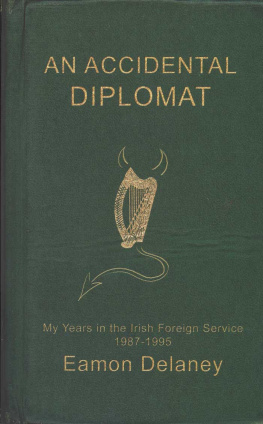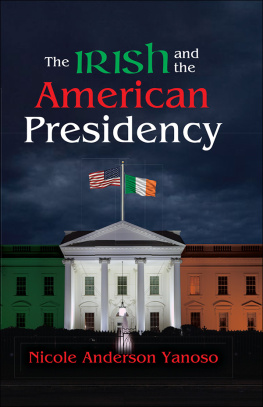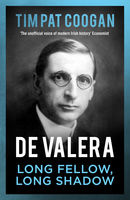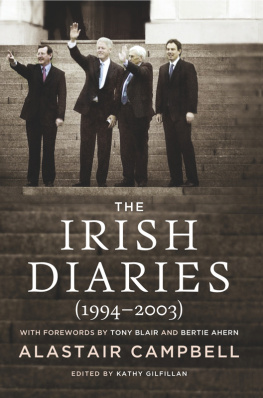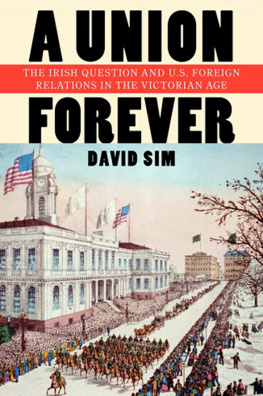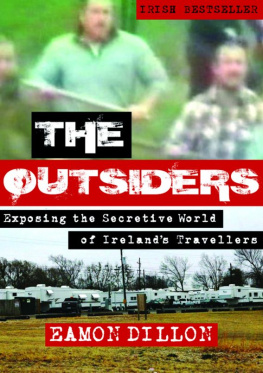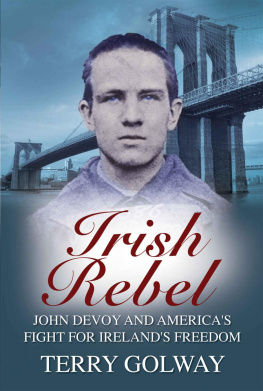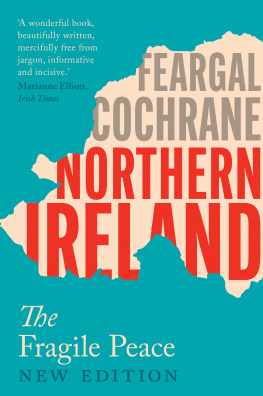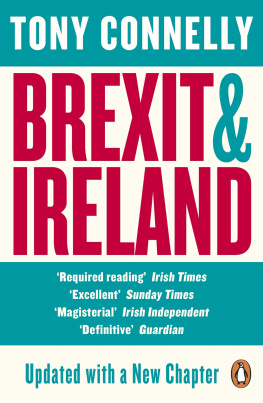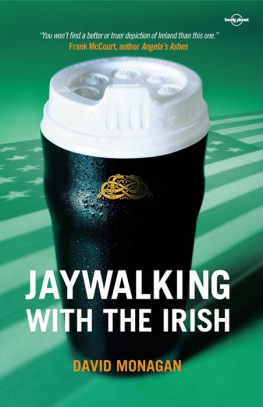AN ACCIDENTAL
DIPLOMAT
My Years in the Irish Foreign Service
1987-1995
Eamon Delaney lives in Dublin where he is an author and freelance journalist, contributing to a variety of newspapers, magazines and radio programmes. In 1995, he published a novel, The Casting of Mr OShaughnessy. He is presently working on another but may yet come to regret the forfeit of a Civil Service pension.
Acknowledgements
My thanks to those who read the book in its early stages, including David Murphy, Mary Rose Doorly, John Ryan who suggested the title and Joe Joyce. Thanks also to my sister, Catherine, and to the many people who backed up facts and stories, especially Dermot McEvoy and Patrick Farrelly in New York, and Ray OHanlon of the Irish Echo. Special thanks must go to all at New Island Books, especially Ciara Considine and Edwin Higel for their help and perseverance and Joseph Hoban for publicity. And to Roddy Flynn, the editor, whose forensic eye and surgical suggestions did much to improve the clarity of the story. I also am grateful to Barry Lyons, solicitor, for legal advice and to Micheal OHiggins, S.C. and Ronan Munro, who read the text at different stages.
A N A CCIDENTAL D IPLOMAT
M Y Y EARS IN THE I RISH F OREIGN S ERVICE 1987-1995
First published June 2001 by
New Island
2 Brookside
Dundrum Road
Dublin 14
Ireland
www.newisland.ie
Copyright 2001 Eamon Delaney
Print ISBN 978-1-90260-239-4
ePub ISBN 978-1-84840-331-4
mobi ISBN 978-1-84840-332-1
All rights rserved. The material in this publication is protected by copyright law. Except as may be permitted by law, no part of the material may be reproduced (including by storage in a retrieval system) or transmitted in any form or by any means; adapted; rented or lent without the written permission of the copyright owners. Applications for permission should be addressed to the publisher.
British Library Cataloguing in Publication Data A catalogue record for this book is available from the British Library
Contents
For my mother, Nancy
A diplomat is someone who thinks twice
before saying nothing.
Old French saying
Prologue
Dining Against the Government
I joined the Department of Foreign Affairs (DFA) in 1987, a month before Charles J Haughey returned as Taoiseach, and one of my first tasks was to help the Department in plotting against him.
At the time, I was working in the Departments European Union (EU) Co-ordination Section in Harcourt Street and I had to make contact with an incendiary group gathering in the basement of the Grey Door restaurant, off Dublins Fitzwilliam Square. Over a long and heavy lunch, embittered senior officials were drawing up documents of resistance. Coming into power, Haughey proposed to abolish the Departments European Affairs Committee and its Northern Ireland Committee and replace them with Committees based in his own Department. These are the two most important aspects of Foreign Affairs business and the mandarins were up in arms. Or at least, at this stage, up in cigars and brandies.
Admittedly, mine was only a peripheral role, crossing St Stephens Green to collect newer and more militant drafts of this revolutionary Bull, but it offered an early and useful insight into some of the Departments characters and their ability not just to dine for Ireland but to dine against the Government. Haughey was regarded as a bte noire for DFA and, after five years out of office, he was back. There was great speculation in the media about what he would do with Foreign Affairs and the apocryphal story was again re-told of how, on leaving a function in Iveagh House, he stopped beneath the Portland portico and shouted back, Cut their champagne allowance!
There is always antipathy between Central Government and its Foreign Service think of the Foreign Office and Thatcher, or the White House and the State Department. It is to be expected when diplomats go native and internationalistic about issues which they are not elected to lead on. But in Haugheys case the gripe was personal. During the Falklands war he defied most European opinion, and DFA, by wanting a more anti-British stand. In 1981, he tried to shift the Irish Ambassador to the US, Sean Donlon, out of Washington, annoyed by the profile the latter was gaining. Donlon, however, had successfully resisted, helped by senior figures in Irish-American politics, including the so-called Four Horsemen; Governor Hugh Carey; Speaker of the House of Representatives, Tip ONeill and Senators Ted Kennedy and Daniel Patrick Moynihan. Since then Donlon had become Secretary of the Department. (Ironically, Donlons re-emergence ten years later, as Northern Ireland adviser to the Fine Gael Taoiseach, John Bruton, would create conflict between the Taoiseach and DFA.)
In general, Haughey felt that DFA should take a more radical stand on Northern Ireland (NI), at least rhetorically. This was ironic given that the Department was probably more sincerely nationalistic than most politicians, including Fianna Fil, and had actually achieved, under Fine Gael, the Anglo-Irish Agreement in 1985. But this was part of the problem and Haughey, in opposition, threatened not to work the Agreement when he got back to office.
In fairness to Haughey, the intense work on that Agreement had created an extraordinary bond between the upper echelons of DFA and the outgoing Fine Gael (FG) administration. This was particularly the case with Donlon, who worked closely with the previous Minister, Peter Barry. And with Michael Lillis, the head of Anglo-Irish Division, who used to go on holidays in Cyprus with the FG leader, Garret FitzGerald.
FitzGerald regarded DFA almost as a personal fiefdom having presided over its rapid expansion as a dynamic Foreign Minister in the early Seventies (an expansion that would lead to a terrible promotional bottleneck twenty years later). But it was an uncomfortable relationship. In 1987, when Fine Gael finally and reluctantly went to the polls, they held their opening press conference in the ballroom of Iveagh House. We should get the place fumigated, someone said afterwards, correctly anticipating that we would soon be facing a new regime.
Fine Gael, and their former Labour partners, lost the election and those who were tainted didnt waste much time getting out. Donlon was gone by March and Lillis also departed, but not before a story appeared in the papers saying he had turned down becoming Ambassador to Britain. Stuff like this got right up Fianna Fils nose. Lillis and Donlon scarpered off to the private sector and got jobs with Guinness Peat Aviation (GPA), the aircraft leasing group. Others followed and even some Third Secretaries joined GPA. Even old Garret himself got on board. It was like the Fall of Saigon, except this time we were leasing the planes.
The promise of Haugheys return to power engendered much gleeful speculation about what he would do with the gin-swilling diplomats. In Dublin erroneously reported that the shredders were working late into the night in Iveagh House, as if it really was the Fall of Saigon. In fact such speculation showed little appreciation of the continuity of Government. Or of the fact that the Civil Service is the real and permanent Government and that the politicians are only puppets, time-serving mannequins who, if they are clever, will work to the strengths of their scriptwriting masters.
This Haughey did. It helped, of course, that replacing the departed Sean Donlon as Secretary was Noel Dorr, a monkish and mild-mannered man with a slight stoop. He was the ideal Civil Servant; incredibly bright, attentive but invisible. Youd hardly know he was in the room. For this reason, perhaps, he was known as the Late Mr Dorr. The other reason was his occasional habit of arriving late for meetings, a habit that enraged Haughey. One head of Anglo-Irish who arrived, late and windswept, to a meeting in Government Buildings was told by a typist: I wouldnt go in, if I was you.
Next page
